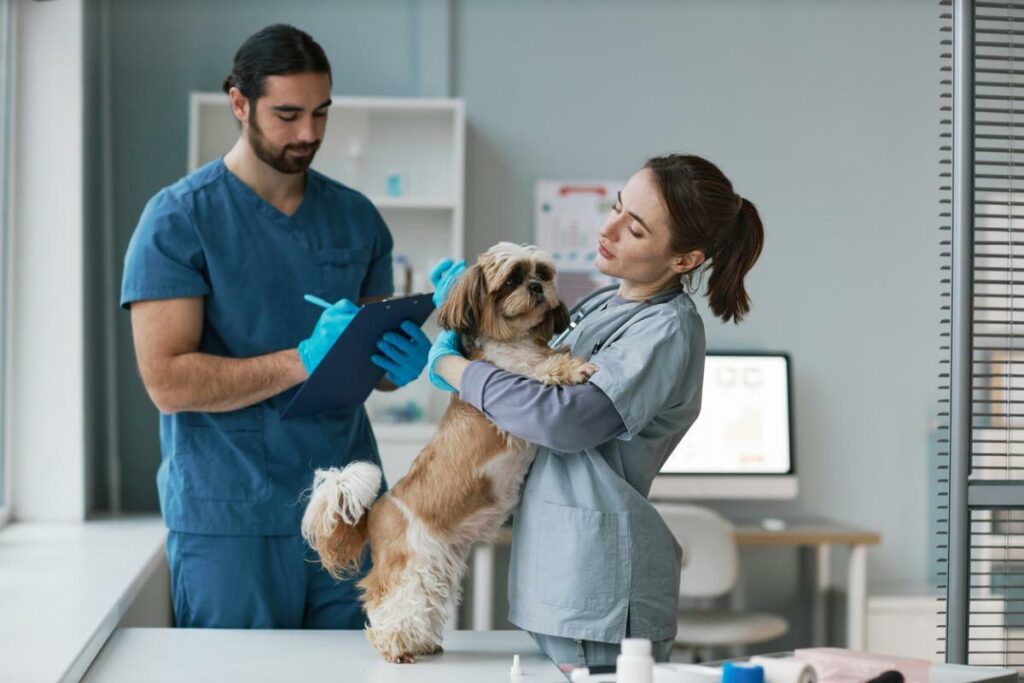Texas veterinarians are subject to the oversight of the Texas Board of Veterinary Medical Examiners (TVBME). This agency not only licenses veterinarians but regulates them to ensure compliance with laws and regulations appliable to their profession. Under Texas law, the TVBME has the authority to discipline licensed veterinarians who violate these laws, which can lead to dire consequences.
If you are facing a complaint or disciplinary proceedings before the TVBME, your first call should be to an experienced veterinarian license defense lawyer. You need legal counsel to help protect your rights, safeguard your license, and allow you to continue working as a veterinarian. Together, you can fight back against the allegations against you and work to resolve your case with minimal effects to your career.
Veterinarians and the Prescription Monitoring Program
Under Tex. Health and Safety Code §481.0764, a person authorized to receive information under HIPAA, other than a veterinarian, shall access that information with respect to the patient before prescribing or dispensing opioids, benzodiazepines, barbiturates, or carisoprodol. However, a veterinarian authorized to access information under HIPAA regarding a controlled substance may access the information for prescriptions dispensed only for the animals of an owner and may not consider the personal prescription history of the owner. As a result, unlike physicians and other healthcare professionals, veterinarians are not required to access the Prescription Monitoring Program (PMP) and review a patient’s information before prescribing certain controlled substances.
However, the legislation concerning the PMP did require the Texas State Board of Pharmacy to automatically create a PMP user account for each licensed veterinarian in Texas. As a result, the TBVME provides an email address for each licensed veterinarian to the Board of Pharmacy to be associated with that PMP user account.
Veterinarians and Prescription Drugs
Although veterinarians are not subject to the same requirements as other health care professionals in terms of the PMP, they are subject to various state and federal laws concerning prescription drugs and controlled substances. Under 22 Tex. Admin. Code §573.41, a licensed veterinarian must first establish a veterinarian-client-patient relationship and determine that a prescription drug is therapeutically indicated for the health and/or well-being of an animal before prescribing, administering, dispensing, delivering, or ordering any prescription drug. Prescription drugs include all controlled substances in Schedules I – V and legend drugs, as recognized under state and federal law. Failure to do so constitutes unprofessional conduct under Texas law.
Likewise, it is unprofessional conduct and a violation of the rules of professional conduct for a licensed veterinarian to prescribe, provide, obtain, order, administer possess, dispense, give, or deliver to or for any person prescription drugs that are not necessary or required for the medical care of animals, or where the use or possession of such drugs would promote addiction thereto.
Under 22 Tex. Admin. Code § 573.43, a veterinarian licensed in Texas must comply with all requirements of the federal Drug Enforcement Administration (DEA) regarding controlled substance registration, as well as all relevant state and federal statutes and rules.
Controlled Substances, and Recordkeeping
Under 22 Tex. Admin. Code § 573.50, veterinarians must follow certain recordkeeping procedures concerning controlled substances. More specifically, veterinarians must maintain records of all scheduled drugs under the Texas Controlled Substances Act in their possession at their places of business for a minimum of five years. Veterinarians must maintain a contemporaneous, complete, and legible record for each drug, which includes the name of the drug, the date of acquisition, the quantity purchased, the date administered or dispensed, the quantity administered or dispensed, the name of the client and/or patient receiving the drug, and the total balance on hand of the scheduled drug.
Click to contact our professional license defense lawyers today
Controlled Substances and Security
22 Tex. Admin. Code § 573.61 require veterinarians to establish adequate security to prevent unauthorized access to and diversion of controlled substances. During the course of business activities, veterinarians may not allow any individuals access to the controlled substances storage area except those authorized agents required for efficient operations. All controlled substances listed in Schedules I – V must be stored in a securely locked, substantially constructed cabinet or security cabinet. This code section contained detailed requirements defining what constitutes a “substantially constructed” or security cabinet. Additionally, veterinarians must maintain a written list of all persons who have access to the controlled substances storage areas, including the dates on which the persons are added or deleted from the list.
Complete a Case Evaluation form now
Count on Bertolino LLP to Defend Your Veterinary License from Disciplinary Action
Don’t allow a complaint to derail your career without cause. When you are facing disciplinary proceedings, you need a seasoned veterinarian license defense attorney on your side. We will defend you against the allegations you are facing and work to clear your name. Contact the lawyers of Bertolino LLP today by calling (512) 515-9518 or visiting us online.
Call or text (512) 476-5757 or complete a Case Evaluation form



